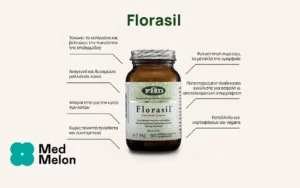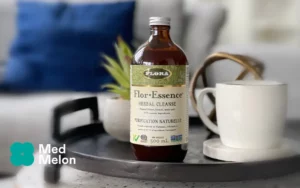Scientific Names: Yucca baccata TORR., Y. schidigera Roezl ex Ortgies, Y. brevifolia, Y. glauca, Y. mohavensis Engelm., Y. arborescens Trel. [Fam. Agavaceae]
Anchor Forms:
Yucca juice (externally); saponin extracts of the dried whole plant or root
Traditional Usage:
– Antinflammatory
– Baldness (externally)
– Bone and Joint Conditions
– Cellular Regeneration
– Cleansing
– Dandruff (externally)
– Detoxifying
– Gastrointestinal Disorders
– Hair Wash
– Headache
– High Cholesterol
– High Triglycerides
– Hygiene
– Hyperglycemia
– Shampoo
– Skin Conditions (externally)
– Soap
– Sprains (externally)
– Stomach Disorders
– Styptic
– Painful Joints
– Vascular Disorders
– Wounds
Overview:
The water extracts of various species of yucca, Y. baccata TORR., Y. schidigera Roezl ex Ortgies, Y. brevifolia, Y. glauca, Y. mohavensis Engelm., Y. arborescens Trel. [Fam. Agavaceae], were used by Native American Indians in salves or poultices for healing sores, wounds, skin diseases, sprains and broken limbs. Yucca plant juice was also used topically to soothe painful joints. Hair shampoos were also prepared for treating dandruff and baldness. Yucca saponin extracts have also been used internally for treating painful bone and joint conditions, hyperglycemia and stomach disorders. Saponins, precursors of cortisone that bind toxins in the intestines and prevent their release, are also produced naturally in the body by the adrenal glands. A human double-blind clinical trial with a saponin-containing yucca extract has been reported to reduce symptoms of swelling, pain and stiffness in approximately half of 150 patients suffering from acute bone and joint pain. Positive results were seen within days for some participants, whereas others responded only after several weeks to months. Another human double blind clinical trial documented the effects of yucca saponin extracts for lowering vascular pressure, reducing high cholesterol and normalizing triglycerides in 212 patients suffering from acute bone and joint disorders coupled with vascular disease. Yucca is said to work best in conjunction with optimized diet and exercise routines. Its extracts are also said to relieve headaches and improve vascular and gastrointestinal function. Animal studies have shown that a saponin-containing leaf extract has powerful anti-inflammatory activity against carrageenan-induced inflammation. Potent activity against abnormal growths has also been documented for a polysaccharide-containing extract of Y. glauca, as well as for the saponin called tigogenin found in several yucca species. Yucca root extracts are also used in tonics designed to help the body cleanse and detoxify, particularly for removing putrefactive substances from the gastrointestinal tract.
Active Ingredients:
Yucca contains: Terpenoids including various saponins isolated from different yucca species, including tigogenin and chlerogenin, yuccagenin and kammogenin, sarsasapogenin, markogenin, higogenin, neo-tigogenin, neo-gitogenin, hecogenin, gloriogenin, diosgenin (trace) and smilagenin. Eight steroidal saponins were recently isolated from Yucca schidigera Roezl., including three novel furostanol glycosides and five known spirostanol glycosides. Furostanol glycosides made up only 6.8% of total saponins isolated.
Suggested Amount:
Yucca Juice: For external use on superficial skin wounds, sores, sprains and other skin conditions, apply as a salve several times per day. Aqueous extracts may also be used as a wash for dandruff and baldness. Yucca Saponin Extracts: The standard dosage of concentrated yucca saponins is two to four tablets or capsules a day. It is also available as a tea, with the usual dosage being 3-5 cups a day. Capsules and tablets are commonly sold in doses of 500 milligrams.. Water extracts were found to have activity against abnormal skin growths in mice and root saponin extracts were shown in one clinical study to be effective against bone and joint conditions, although these findings were disputed. Saponin extracts from other sources, such as soy, are known to have powerful bioactivity for lowering cholesterol and improving health through many other benefits. It is believed yucca works best when taken over an extended period of time.
Drug Interactions:
Long term internal use of yucca extract can interfere with the absorption of vitamins A, D, E, and K.
Contraindications:
There are no known problems with using yucca during pregnancy and lactation; however, it is not recommended to exceed amounts normally ingested as a food. Since it has rarely been studied in a scientific setting, it is not known whether extracts are safe for children, pregnant or lactating women, or people with a history of severe kidney or liver diseases, heart disease or other serious degenerative diseases.
Side Effects:
A human clinical trial to test the efficacy of a yucca saponin extract for treating arthritic symptoms was give to more than 700 arthritis patients and no signs of toxicity were documented. A 12-week study in rats concluded that it was non-toxic as well. Yucca juice, however, is toxic to lower life forms and was traditionally used as an arrow poison in hunting. Saponins are found in common foodstuffs such as soy products. Saponins are hemolytic compounds, but because they are not absorbed from the gastrointestinal tract, there appears to be no danger of systemic hemolytic activity. Saponins extracted from yucca plants are generally considered safe when used in traditional doses and forms based on several hundred years of use by Native Americans, both as food and medicine. In recent years, the only reported minor problems are rare cases of diarrhea and nausea.
References:
Bingham, R. et al. 1975. Yucca plant saponin in the management of arthritis. J. Appl Nutr 27: 45-51.
Bingham, R. et al. 1978. Yucca plant saponin in the management of hypertension and hypercholesterolemia. J. Appl Nutr 30: 127-136.
Foster S, and Duke JA. 1990. Yucca in Eastern/Central Medicinal Plants. Peterson Field Guides. Publ. by Houghton Mifflin Company, 215 Park Avenue South, New York, NY, 10003. Pp. 228.
Newall CA, Anderson LA, and Phillipson JD. 1996. Yucca in Herbal Medicines. A Guide for Health Care Professionals. The Pharmaceutical Press, London, pp. 258-259.
Oleszek W, Sitek M, Stochmal A, Piacente S, Pizza C, Cheeke P. 2001. Steroidal saponins of Yucca schidigera Roezl. Agric Food Chem 2001 Sep; 49(9): 4392-6.




